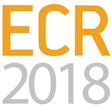MRI: Page 207
Leave no invasive breast cancer behind by using MRI
March 2, 2018
Pediatric patients use app to prep for MRI scan
March 1, 2018
Philips launches new 3T MRI scanner at ECR 2018
February 28, 2018
Canon launches new 1.5-tesla MRI, US unit at ECR
February 28, 2018
Samsung highlights ultrasound, DR at ECR
February 28, 2018
No gadolinium needed for follow-up MRI inner ear scans
February 27, 2018
Elekta partners with NY cancer center on radiation therapy
February 26, 2018
Fla. radiology firm sues MRI centers for $68K
February 26, 2018






